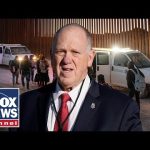A firestorm has erupted across the late-night TV landscape, with the recent suspension and reinstatement of Jimmy Kimmel exposing just how precarious the state of free speech has become in America’s mass media. It’s not just a matter of off-color jokes or prickly satire—what’s unfolding is a telling lesson in who gets to set the boundaries of acceptable speech when the government and corporate interests converge. Kimmel’s removal after controversial remarks about the tragic killing of conservative activist Charlie Kirk ignited a national debate, one that made it clear: popular comedians are not immune from the chilling effects of a culture obsessed with censorship and ideological obedience.
While Kimmel returned to his show and attempted to clarify his intentions, the context cannot be ignored. The initial suspension was triggered not by market forces, but by pressure from government officials—specifically, comments by the FCC chairman implying that the Trump administration could punish the network. This is deeply alarming for anyone concerned with constitutional freedoms. The moment federal regulators start weighing in on who should or should not be allowed on air, the conversation shifts from humor to outright intimidation. It’s a classic case of bureaucrats meddling where they shouldn’t, using the power of licensing as a cudgel against viewpoints that challenge politicians.
The hypocrisy in these situations is staggering. For years, progressives controlled the late-night airwaves, mocking conservatives with impunity while corporate executives turned a blind eye. But the instant a joke crosses a line deemed unacceptable, a full-blown campaign erupts to silence dissenting voices. Instead of celebrating the robust exchange of ideas America is known for, network executives scramble to appease the loudest activists, sidelining those who refuse to toe the politically correct line. It’s a telling sign of how far the culture of cancellation has gone—the left once cheered this climate, but now recoils when similar tactics strike close to home.
Accountability and personal responsibility should be foundational in both comedy and commentary, yet the prevailing double standards leave much to be desired. Those eager to pounce on their ideological adversaries rarely show the courage to engage in honest debate. Instead, virtue signaling and performative outrage replace actual dialogue. Kimmel’s case illustrates how the so-called defenders of free speech are often only enthusiastic when their own views dominate the conversation, while using every tool available to muzzle the opposition.
At the end of the day, free speech must remain sacred, especially when it comes to public figures who hold sway over national discourse. The intersection of government, big media, and cancel mobs is a direct threat to the First Amendment rights of all Americans. What this saga makes clear is the urgent need for a renewed commitment to genuine free expression—a commitment that doesn’t vanish when the joke, the host, or the message falls outside elite orthodoxy. Only then can the nation rediscover not just laughter, but the liberty that makes laughter—and America—possible.




